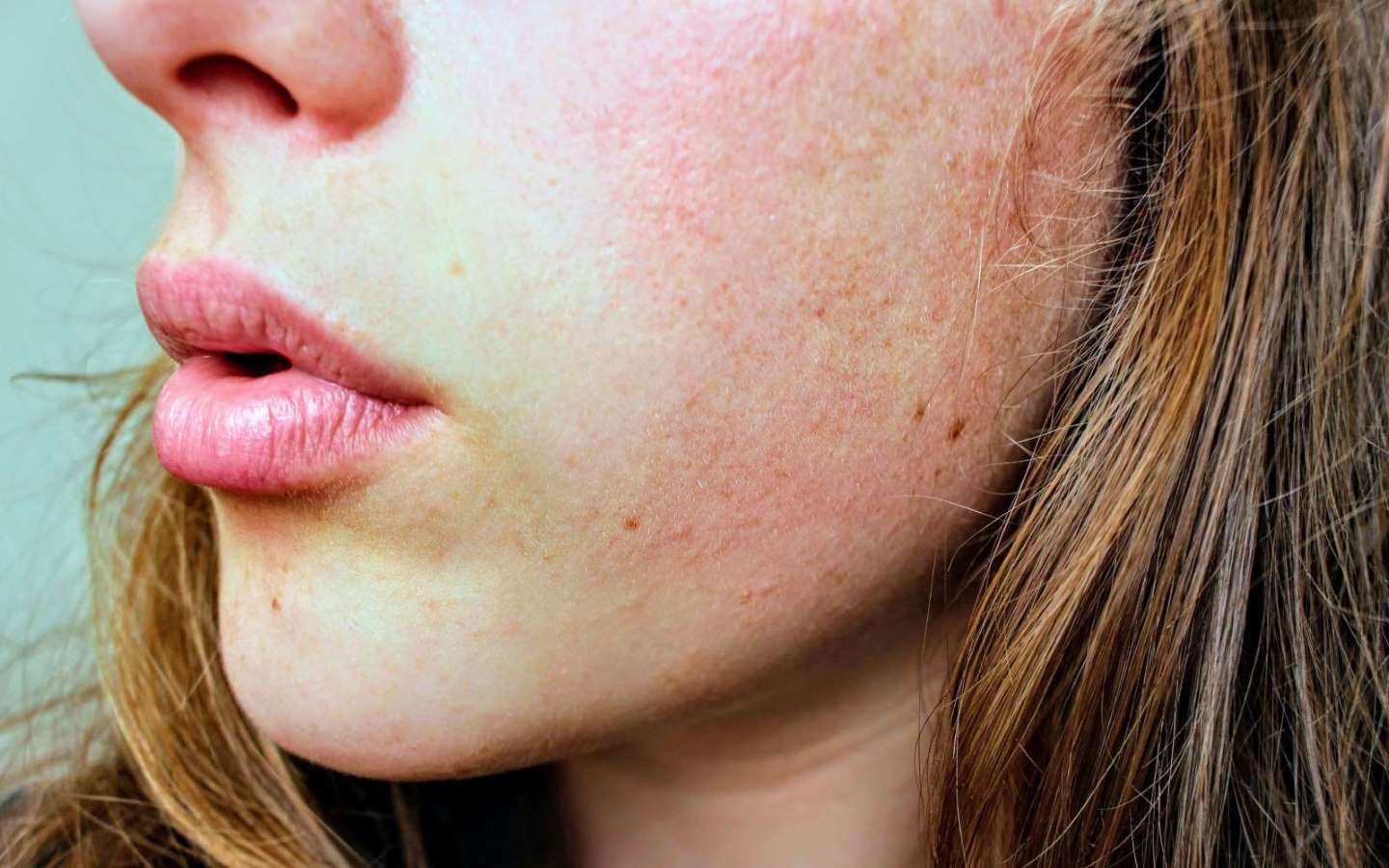Inflammation is widely associated as a negative response in the body. However, it may not be such a bad thing after all. Inflammation is your body’s immune response to injury, infection, or allergens. It fights foreign invaders and helps your body heal, restoring health to the affected area. While short-term inflammation is protecting you, it is chronic inflammation you should really be concerned about.
Chronic inflammation is an immune response that lingers for a long time. When your skin is exposed to chronic inflammation, you end up with a permanently red, irritated-looking face. Facial redness is only one part of the problem. Ongoing inflammation damages skin cells, contributing to premature skin aging.
Fortunately, there are many ways to relieve skin inflammation. Below are seven tips for how to reduce inflammation on the skin:
1. Reduce Systemic Inflammation
Skin is the body’s largest organ. As a result, the state of your overall health will affect your skin. If you’re healthy, your skin will radiate a natural glow. And if your body is fighting chronic inflammation, that will manifest in your skin as redness, dryness, and hypersensitivity. Systemic inflammation is what causes inflammation on the skin.
So, let’s discuss how to reduce inflammation on the skin. Start with reducing inflammation in your body. Chronic stress, a high-sugar diet, and being overweight are the most common causes of systemic inflammation. Simple lifestyle changes, like limiting your carbohydrate intake, getting enough sleep, and exercising regularly can help you achieve a healthier body and better skin.
2. Be Gentle With Your Skin
Who doesn’t love to give their skin a good, hard scrub? The harder you scrub, the cleaner and glowier your skin, right? Well, those abrasive substances that polish your skin can also damage it. Aggressive physical exfoliation creates micro-tears in the skin. Your immune system responds to these injuries by triggering inflammation.
If you want to keep your skin healthy and radiant, go for chemical exfoliation instead. Chemical exfoliators, like the Senté Exfoliating Cleanser, are gentler on your skin, because they use mild acids to promote cell turnover. These acids dissolve the bonds that hold dead skin cells together. Once broken down, dead skin cells shed on their own without any manual effort.
3. Protect From the Sun

What causes inflammation on the skin? You guessed it ⏤ sunlight. From the surface layer all the way down to the deep dermis, the sun’s ultraviolet radiation damages skin at all levels. When skin cells are damaged, your immune system induces inflammation to heal the affected tissues. Frequent exposure to UV rays can make this inflammation chronic and destructive.
Wearing sunscreen religiously is one of the best ways to target how to reduce inflammation on the skin. Sunscreens block or absorb UV rays before they absorb into your skin, preventing damage and inflammation. Always apply a broad-spectrum, SPF 30 sunscreen before you go outside. Opt for physical sunscreens, as they’re safer and less irritating than chemical ones.
4. Avoid Allergens
According to the Environmental Working Group (EWG), there may be more than 88 chemicals in your favorite personal care product. Many of these chemicals are potential allergens and can cause an allergic reaction. When your skin comes into contact with an allergen, your immune system releases proinflammatory substances to neutralize the threat.
Using products with potential allergens can produce chronic skin inflammation. If you want to know how to reduce inflammation on the skin, look for skincare solutions that are labeled “hypoallergenic.” Hypoallergenic skincare products are formulated with fewer potential allergens. This makes them less likely to provoke an inflammatory response.
5. Build Up Your Barrier
What causes inflammation on the skin? A compromised skin barrier is a common culprit. The skin barrier is the outermost layer of your skin. It forms a protective shield over your body to minimize moisture loss and prevent environmental irritants from penetrating into your skin. When weakened, external aggressors infiltrate your skin and produce chronic inflammation.
Strengthening your barrier is necessary for how to reduce inflammation on the skin. To build up your barrier, you will need niacinamide skincare products. Niacinamide is a form of vitamin B3 that increases keratin and ceramide production, which are essential components of the skin barrier. With a reinforced barrier, you ward off the irritant invasions that inflame your skin.
6. Use Topical Antioxidants

As you’re reading this, your skin is under attack from free radicals. Free radicals are unstable molecules that react with and damage healthy cells. This persistent cellular injury is among the leading causes of chronic inflammation. Unfortunately, free radical formation can’t be prevented. Many factors, ranging from air pollution to normal bodily processes, generate free radicals.
Although you can’t block free radical production, you can mitigate their harmful effects. This is where antioxidants come in. Antioxidants are natural or man-made compounds that neutralize free radicals to render them ineffective. If you’re interested in how to reduce inflammation on the skin, use antioxidant face creams to help your skin counteract free radical damage.
7. Apply Soothing Ingredients
No matter what causes inflammation on the skin, applying soothing ingredients can alleviate its symptoms. Skin-soothing agents are naturally occurring or manufactured substances that have anti-inflammatory properties. These ingredients work in different ways to ease signs of inflammation. This can include calming irritation, reducing the appearance of redness, and diminishing sensitivity.
Among the best of these ingredients is heparan sulfate analog (HSA). HSA is a modified form of heparan sulfate ⏤ a molecule your body produces to lower inflammation. HSA boosts your body’s defenses against injury to lessen its inflammatory response. In one clinical study, our HSA-infused Dermal Repair Cream reduced the appearance of skin redness and irritation after four weeks of use.
Calm Your Skin With Senté
Skin inflammation does more than just produce unsightly redness. If left unchecked, chronic inflammation destroys the structure of the skin. Now that you’ve learned how to reduce inflammation on the skin, begin your journey to prevent further damage. Shop Senté medical-grade skincare products to calm your skin and restore its optimal health.
The views or external links featured on this blog represent the opinions of their respective contributors and may not necessarily reflect the position of Sente. All content is provided for informational/educational purposes and is based on personal experiences, observations, or research. While every effort is made to ensure accuracy, Sente makes no representations or warranties about the completeness, reliability, or accuracy of the information presented. The information and opinions shared on this blog do not constitute medical advice. Readers are encouraged to independently verify information and should consult a qualified healthcare professional for diagnosis and treatment of any medical condition.



